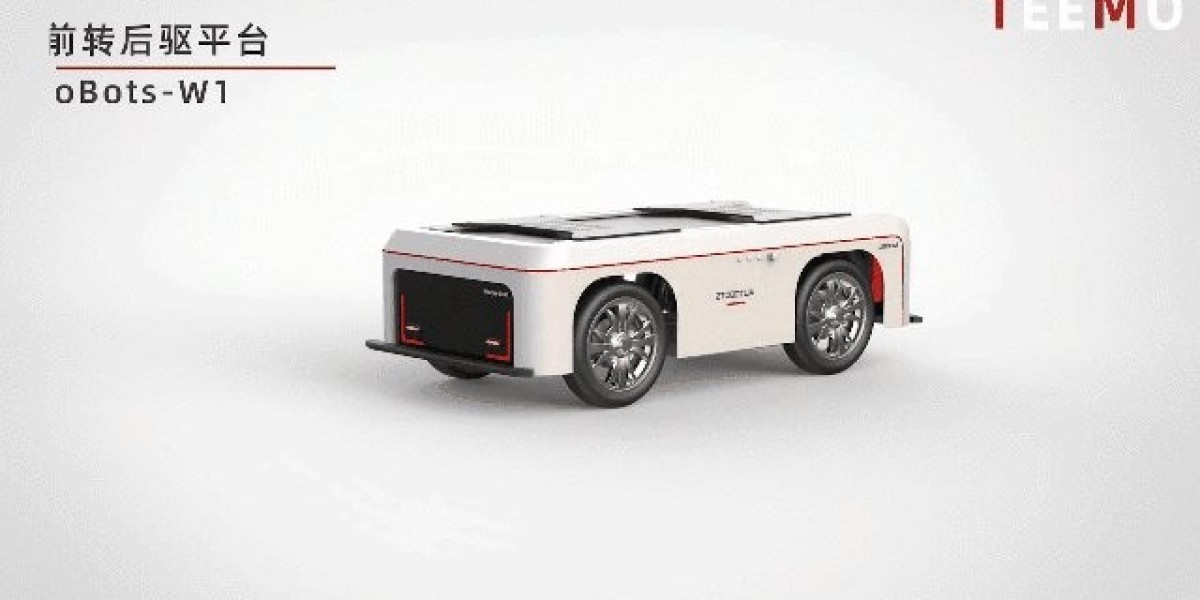In the rapidly developing field of autonomous vehicle technology, especially for electric vehicles (EVs), intelligent skateboard chassis platforms, such as the TEEMO AutoBots-W1 intelligent skateboard chassis, can integrate essential components into a flat, modular structure, providing greater flexibility in vehicle design and manufacturing. In this blog, we will explore the key features and capabilities of the intelligent skateboard chassis.
Understanding the Intelligent Skateboard Chassis
Thehttps://www.teemoauto.top/Skateboard-chassis-W1.htmlis a foundational platform for electric vehicles that houses critical components such as batteries, electric motors, and electronic control units. Its design resembles a skateboard, where the flat base serves as a versatile foundation for various vehicle models. This configuration allows manufacturers to create multiple vehicle types without needing to redesign the entire chassis for each model.

Key Features of the Intelligent Skateboard Chassis
1.Modular Design:
The skateboard chassis is modular in nature, meaning it can be easily adapted to different vehicle shapes and sizes. This flexibility reduces manufacturing costs and time, as the same chassis can support multiple body styles.
Manufacturers can scale the platform to accommodate different battery sizes and configurations, ensuring that different consumer needs can be met without extensive redesign work.
2.Integrated Components:
One of the standout features of the intelligent skateboard chassis is its integration of critical systems. For instance, CATL's Integrated Intelligent Chassis (CIIC) incorporates the battery cells directly into the chassis using Cell-to-Chassis (CTC) technology. This integration enhances structural integrity and optimizes space utilization within the vehicle.
The CIIC also includes advanced systems such as brake-by-wire and steer-by-wire technologies, which eliminate traditional mechanical linkages in favor of electronic controls. This not only simplifies design but also enhances responsiveness and safety.The deep integration of systems means that safety features can be more effectively managed through software, allowing for real-time monitoring and adjustments during operation.
3.Enhanced Safety Features:
The intelligent skateboard chassis is designed with safety as a priority. For example, it can absorb up to 85% of collision energy, significantly reducing the impact on passengers during an accident.
4.Improved Efficiency:
By consolidating multiple components into a single unit, the intelligent skateboard chassis reduces weight and complexity. This efficiency translates to improved range and performance for electric vehicles.
The use of advanced materials and design techniques also contributes to lower energy consumption during operation, making these vehicles more sustainable.
5. Customization and Scalability:
The modular nature of the skateboard chassis enables manufacturers to customize features based on market demands. For example, components such as all-wheel drive systems or advanced suspension setups can be easily added or removed based on specific vehicle requirements.
Functionalities of the Intelligent Skateboard Chassis
The functionalities of an intelligent skateboard chassis extend beyond mere structural support; they encompass a range of capabilities that enhance vehicle performance and user experience.
1.Energy Management:
The chassis acts as an energy center, managing power distribution between various components efficiently. This centralized approach ensures optimal performance across different driving conditions.
Advanced thermal management systems integrated into the chassis help maintain battery performance and longevity by regulating temperature effectively.
2.Drive-by-Wire Technology:
With drive-by-wire systems replacing traditional mechanical controls, drivers experience enhanced responsiveness and precision in handling. These systems allow for sophisticated features such as adaptive cruise control and automated parking assistance.
The decoupling of physical controls from mechanical systems also opens up possibilities for future advancements in autonomous driving technologies.
3.Data Integration:
The intelligent skateboard chassis serves as a data hub, collecting information from various sensors throughout the vehicle. This data can be used for real-time diagnostics, predictive maintenance, and enhancing overall vehicle performance.
Manufacturers can leverage this data to improve user experiences through software updates that enhance functionality or introduce new features over time
4.Sustainability Considerations:
By integrating batteries directly into the chassis and optimizing space utilization, manufacturers can reduce material waste during production. Additionally, the lightweight design contributes to lower energy consumption during operation.
Many intelligent skateboard chassis are designed with recyclability in mind, ensuring that materials can be repurposed at the end of their lifecycle.

Autonomous Logistics Solution:The TEEMO AutoBots-W1 Intelligent Skateboard Chassis
The TEEMO AutoBots-W1 intelligent skateboard chassis is designed with a skateboard platform concept, featuring a separated upper and lower body structure. This design philosophy allows for a high degree of modularity, enabling the chassis to accommodate various upper body modules. This modularity is crucial for adapting to multiple scenarios, such as autonomous logistics, delivery, and inspection, making the chassis a versatile solution for a range of applications.
Conclusion
The smart skateboard chassis represents a significant advancement in autonomous vehicle technology. Its modular design, performance specifications, safety features, and intelligent hardware capabilities make it a versatile and reliable platform for a variety of autonomous driving applications. As the demand for autonomous driving solutions continues to grow, the smart skateboard chassis will undoubtedly play a key role in shaping the future of mobility.
TEEMO Intelligent Skateboard Chassis: Improving the Performance of Autonomous Vehicles







